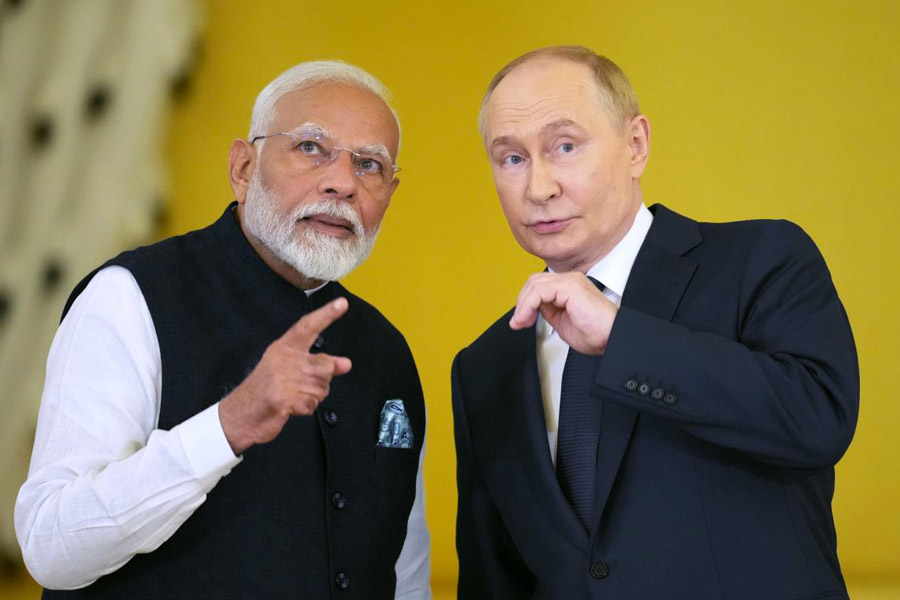The external affairs ministry on Friday sought to play down the concerns expressed by the US government about Prime Minister Narendra Modi’s Russia visit, maintaining that the India-US strategic partnership allows room “to agree to disagree”.
Asked about the slew of remarks on the visit from Washington — the state department, Pentagon, and even the national security adviser — besides the US ambassador in India, external affairs ministry spokesman Randhir Jaiswal said: “Our comprehensive global strategic partnership with the US gives us the space to agree to disagree on certain issues while respecting each other’s viewpoints.”
Specifically, with regard to US ambassador Eric Garcetti’s remark that there is no such thing as strategic autonomy in times of conflict, Jaiswal said: “India, like many other countries, values its ‘strategic autonomy’. The US ambassador is entitled to his opinion. Obviously, we have different views.”
Garcetti had recently said: “No war is distant anymore. And we must not just stand for peace. We must take concrete actions to make sure those who don’t play by peaceful rules, that their war machines cannot continue unabated. That’s something that the US needs to know and that India needs to know together…. I respect that India likes its strategic autonomy, but in times of conflict, there is no such thing as strategic autonomy.”
These remarks of Garcetti during his speech at the Defence News Conclave last week were widely perceived to be an oblique comment on Modi’s visit to Russia and the bonhomie with Putin that was on display in Moscow.
Prior to Garcetti, US national security adviser Jake Sullivan had in a television interview said that Russia is not a good bet for any country in the long run. “We’ve made clear to every country in the world including India that a bet on Russia as a long-term, reliable partner is not a good bet,” Sullivan said.
See Metro










